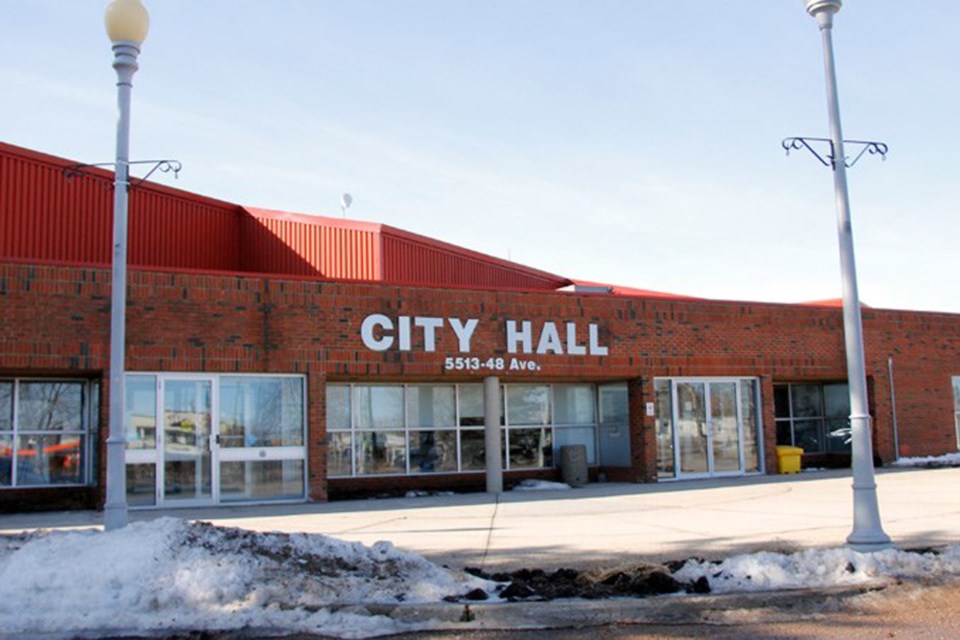COLD LAKE – While grappling with rising costs, the City of Cold Lake has approved its 2024 capital and operating budgets. And despite facing substantial cost escalations in several areas, council has managed to maintain stability in services, while focusing on wrapping up initiatives, although it will likely mean an increase in taxes.
Mayor Craig Copeland acknowledged the reality of increased expenses, affecting households, businesses, and municipalities alike.
“It impacts the municipalities just like it does a homeowner or business owner, especially when it’s on the utility side, whether it’s garbage or recycling,” he explained.
The approved budgets outline nearly $70.2 million in expenditures, consisting of just over $58 million for the operating budget and a transfer of $6.7 million to the capital budget for 2024. Among the highlighted allocations, over $12.1 million is dedicated to key projects like Lakeshore Drive Improvements, the new Wastewater Treatment Plant, and the Public Works Operations Centre, according to information from the City of Cold Lake.
An expansion of kayak storage at the marina, siding replacement for the North Arena are also included in the budget. The City also kept the Annual Capital Street Improvement Program at $2 million.
To balance the budget, an estimated 4.98 per cent increase in property taxes is projected. However, individual property tax fluctuations are dependent upon each property's assessment.
“Property taxes for a specific property may increase or decrease at a different rate, depending on the property’s assessment increase or decrease relative to other properties. This is an estimate, as final taxes are not established until May,” according to information from the municipality.
“No one wants to see taxes increase, especially when the economy seems uneasy,” acknowledged the mayor. “But we do need to recognize that things have gotten more expensive and that will be reflected in the cost of services.”
As outlined by the City of Cold Lake, the budget deliberations were shaped by inflation impacting goods and services, escalating costs linked to the Carbon Tax, and challenges posed by vandalism and vagrancy, which have threatened public safety and consequently affected budgets.
Reflecting on the circumstances, Copeland said, “I’ve been mayor for 16 years, it’s the first real year that I can remember where inflation really took a noticeable chunk out of the budget.”
Primary revenue sources for Cold Lake's operating budget stem from property taxes on residential and commercial properties, along with user fees. A decline in provincial and federal funding, paired with uncertainties, has further compounded budgetary constraints, with support of approximately $1.2 million from other government levels.
Highlighting what this number reflects, administration broke down the amount per capita.
“This [$1.2 million] is only approximately $53 per capita in operating assistance from the Government of Alberta and only $20 per capita in federal funding assistance for specific programs and services. In comparison, the residents and businesses of Cold Lake contribute approximately $835 per capital ($1,361 per capita inclusive of commercial property taxes),” according to the City of Cold Lake.
To maintain a balanced budget, moderate reductions were enacted in areas like snow removal, sidewalk replacement, and dust control. Copeland emphasized the City's commitment to retaining crucial programs and services, recognizing the inevitable cost increases amid economic uncertainties.
Explaining the City’s stance, Copeland noted, “The other option was to cut services, and the council pretty much drew a line in the sand and wasn’t prepared to reduce the level of service that residents are accustomed to in Cold Lake.”
Adjustments in the budget include increases to electrical and gas franchise fees, paper utility bill costs, penalties for debts, and recreational fees. Service-related fees such as wastewater, organics collection, waste removal, and pet licensing will also see moderate rises to align with service delivery costs.
While some services faced reductions, the 2024 budget also introduces new programs, including an Economic Development Advisor, to work with local businesses to administer the Rural Renewal Stream of the Alberta Advantage Immigration Program, which has proved to be very successful in Cold Lake. Expanded grant programs, and initiatives to market municipally owned properties to stimulate commercial development will also be a focus.
Increased fees
The budget reflects previously approved increases to the electrical and gas franchise fees. There will also be an increase in the cost of providing paper utility bills to $2.50, up from $1.
Recreational fees will increase by about five per cent, including fees charged at the Energy Centre, the Cold Lake Marina, and the Cold Lake Golf and Winter Club.
“Inflation has set off a domino effect that reaches all aspects of our lives and municipal services are no exception. Our hope is that economic activity picks up and inflation is controlled so that we can make some headway in terms of affordability," says Copeland.
Increased support
Ongoing discussions regarding funding for Council Goodwill and the Community Recreation, Arts, Culture, and Heritage Grant Program has resulted in increases to the budget, from $20,000 to $100,000 and from $80,000 to $250,000, respectively.
“These programs have been very successful in attracting significant events to Cold Lake, promoting the community, contributing positively to the local economy, and enhancing the quality of life for the residents of the City,” according to information from the municipality.



